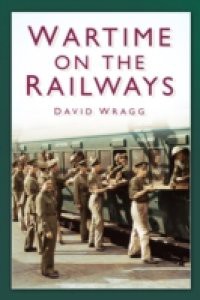From the American Civil War onwards, railways have been an important aspect of war. So important were the railways that in the First World War, the state took control of the railways, and then repeated this exercise in the Second World War. Wartime on the Railways describes the part played by Britain's railways during the Second World War, dealing not simply with operational matters or the impact of enemy action on the railways, but also looking at financial arrangements, the part played by railway workshops in producing equipment for the military, the wartime experience of the railways' ships, with the narrative augmented by personal accounts from railwaymen, and women as the war years saw much change. The book includes chapters on the railways during the final years of peace, and on each of the 'Big Four' companies, London Transport's underground system, the impact of wartime restrictions on travel and scheduling, the role of the railway workshops, and ports and shipping, as many railway ships were lost during the battle for France and at Dunkirk.

